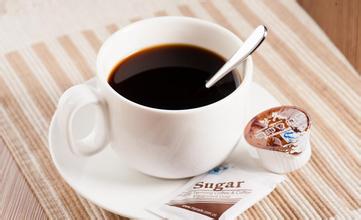Introduction to the flavor and taste of Galapagos coffee beans roasted in sour and sweet range
Features of Galapagos Islands Coffee:
The coffee produced in the Galapagos Islands (Galapagos Islands) is a treasure of coffee. It is of excellent quality and is grown without any chemicals.
Flavor: rich in taste, sweet in sour
Suggested baking method: medium baking
★★★: excellent
Galapagos Islands Coffee Market:
Because of the unique role of the Galapagos Islands in the course of history, the Ecuadorian government has designated the Galapagos Islands as a national park, no longer allowed to reclaim the land for new agricultural land, and strictly forbids the introduction and use of chemical fertilizers, pesticides, herbicides and other chemical agents, so the coffee of the Galapagos Islands is recognized as a natural product. San Cristobal is a larger island in the Galapagos Islands (Galapagos Islands). It is also the only island in the archipelago with plenty of fresh water. At an altitude of 410m, there is a small lake called El.Junco, which forms streams along the rocks and volcanic rocks on the southern slope of the island, and mineral-rich fresh water moistens the land of St. Cristobal, keeping the soil moist and fertile. The local microclimate caused by the Humboldt current (HumboldtCurrent), strong equatorial sunlight and sharp temperature changes (43 degrees at sea level and 10-16 degrees above sea level) provide unique advantages for coffee producing areas in the Galapagos Islands:
Coffee is grown in San Cristobal (SaintCristobal). Arab bourbon coffee trees are planted in the Hasunda Coffee Garden (HaciendaElCafetal) in San Cristobal. The elevation of the plantation is between 140 and 275 meters above sea level, and the climate in this area is equivalent to that between 915 and 1830 meters inland. This gradient is very suitable for the growth of high acidity extra hard coffee beans (SHB), and is also the key to the high quality of coffee.

Important Notice :
前街咖啡 FrontStreet Coffee has moved to new addredd:
FrontStreet Coffee Address: 315,Donghua East Road,GuangZhou
Tel:020 38364473
- Prev

Introduction of Burundian Coffee Flavor Flavor Manor in Burundian Coffee growing country
Burundian Grade: AA,FWS planting area: Buyendi Brand: Buyendi treatment: wet treatment appearance: 1dgray 300grjie 16-18SCR Variety: Jackson bourbon Note: due to ethnic secession, the chaos of Burundian coffee has been going on for a long time, with a large number of mixed raw beans, making this coffee unsuitable for grading. This coffee
- Next

Yunnan Iron pickup Coffee Bean Flavor taste Manor production area introduction of Iron pickup Coffee Arabica Coffee beans
All the varieties planted in Pu'er area of Yunnan are catimor (Katim). In Baoshan City, typica and bourbon were introduced as early as the 1950s, and the locals called them old varieties. Because the old varieties have low disease and insect resistance and yield, and the management is relatively expensive and manpower, coupled with the market purchase price does not have many advantages, brown farmers have changed to new products in recent years.
Related
- Detailed explanation of Jadeite planting Land in Panamanian Jadeite Manor introduction to the grading system of Jadeite competitive bidding, Red bid, Green bid and Rose Summer
- Story of Coffee planting in Brenka region of Costa Rica Stonehenge Manor anaerobic heavy honey treatment of flavor mouth
- What's on the barrel of Blue Mountain Coffee beans?
- Can American coffee also pull flowers? How to use hot American style to pull out a good-looking pattern?
- Can you make a cold extract with coffee beans? What is the right proportion for cold-extracted coffee formula?
- Indonesian PWN Gold Mandrine Coffee Origin Features Flavor How to Chong? Mandolin coffee is American.
- A brief introduction to the flavor characteristics of Brazilian yellow bourbon coffee beans
- What is the effect of different water quality on the flavor of cold-extracted coffee? What kind of water is best for brewing coffee?
- Why do you think of Rose Summer whenever you mention Panamanian coffee?
- Introduction to the characteristics of authentic blue mountain coffee bean producing areas? What is the CIB Coffee Authority in Jamaica?

